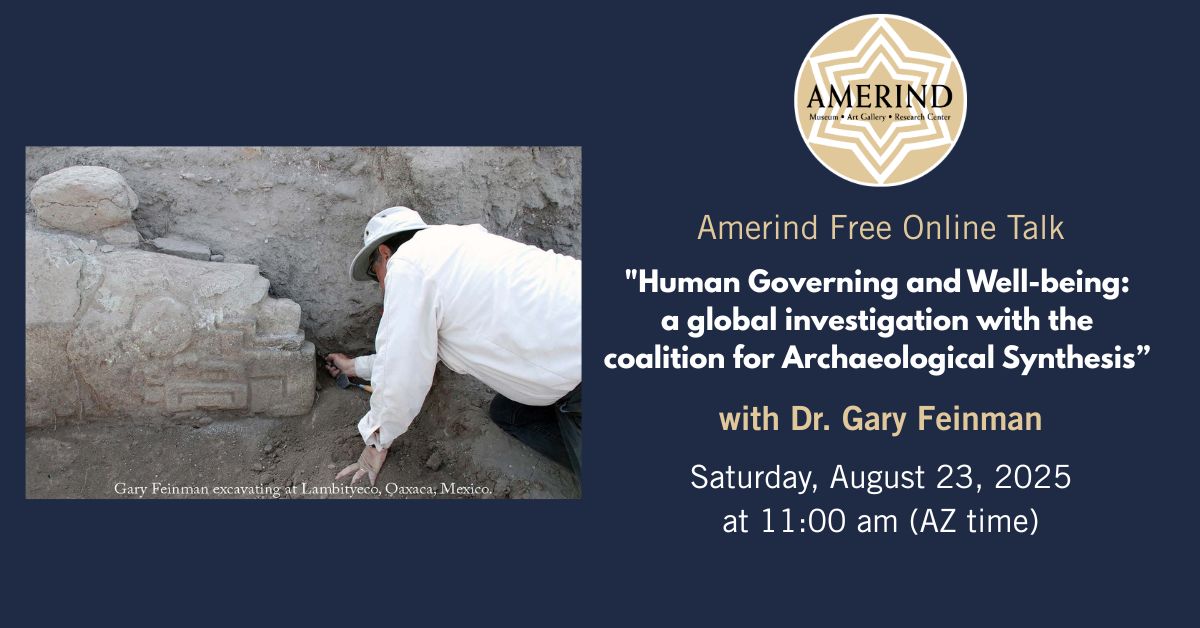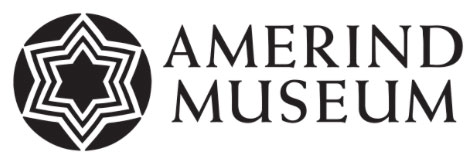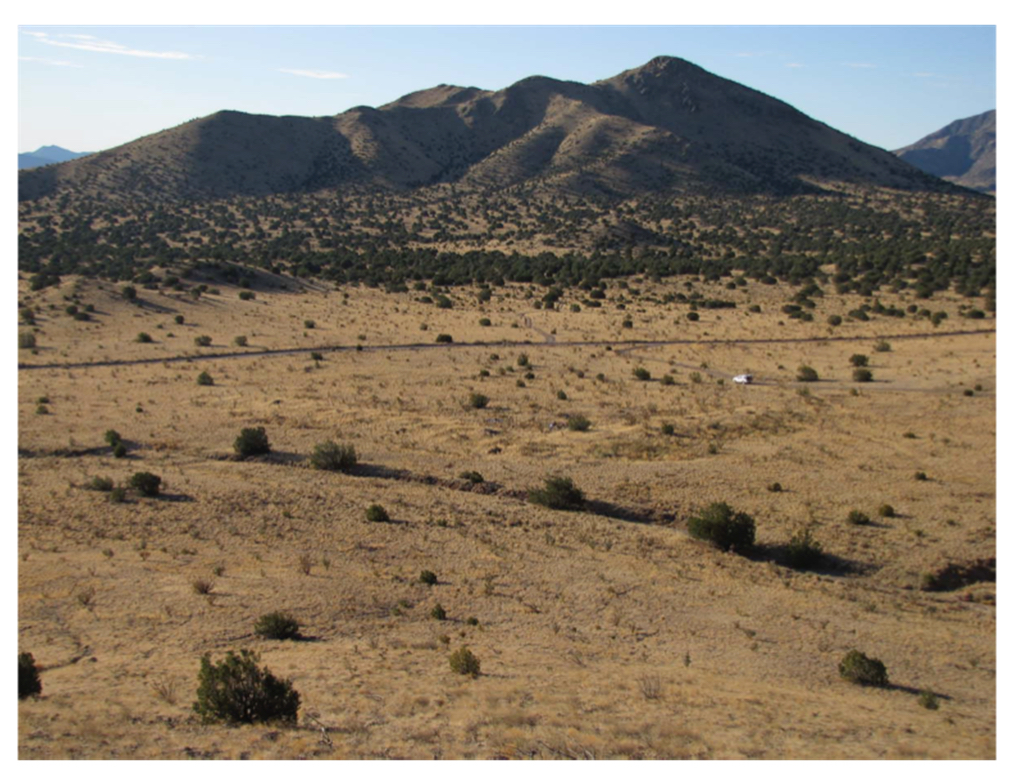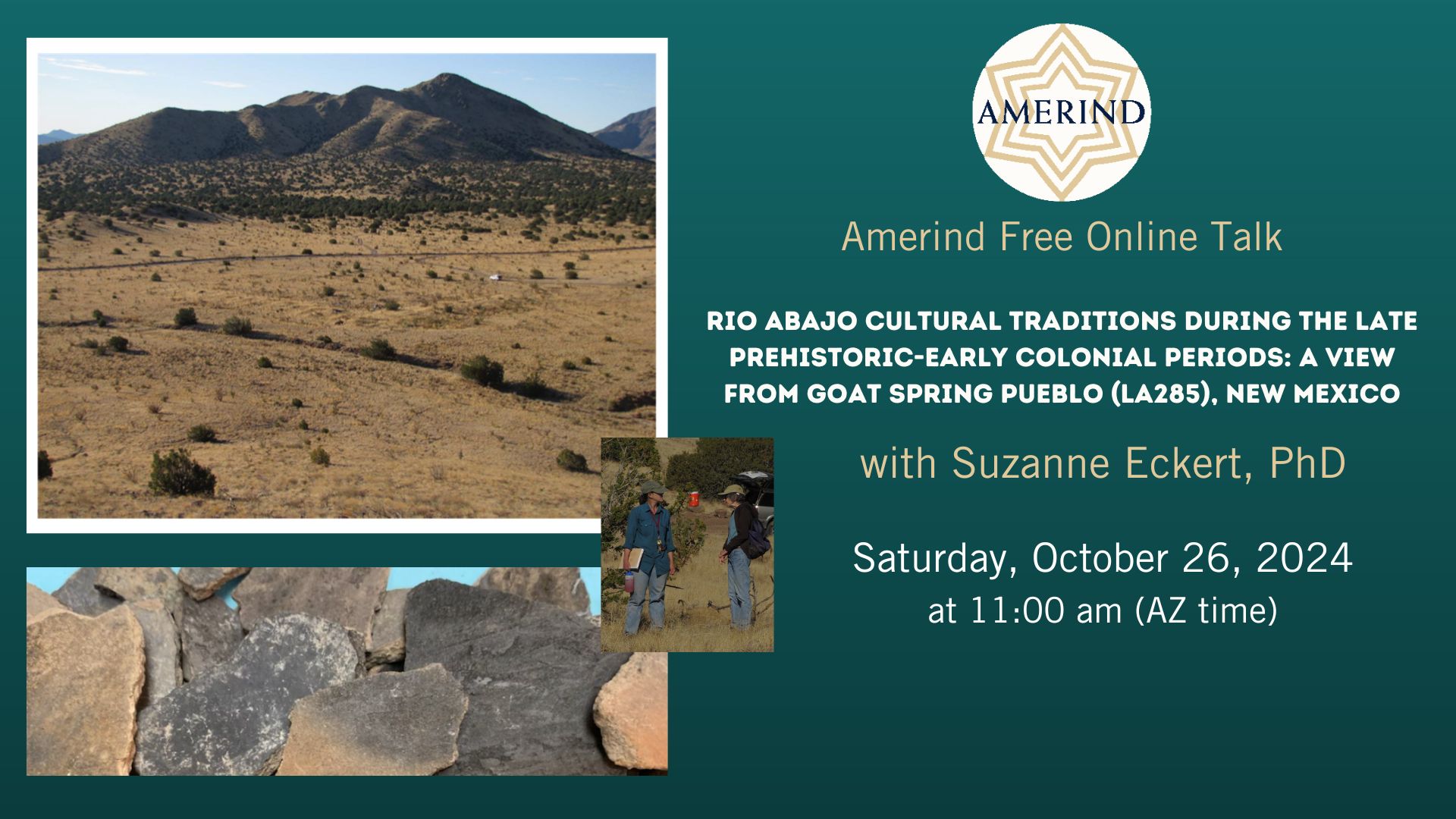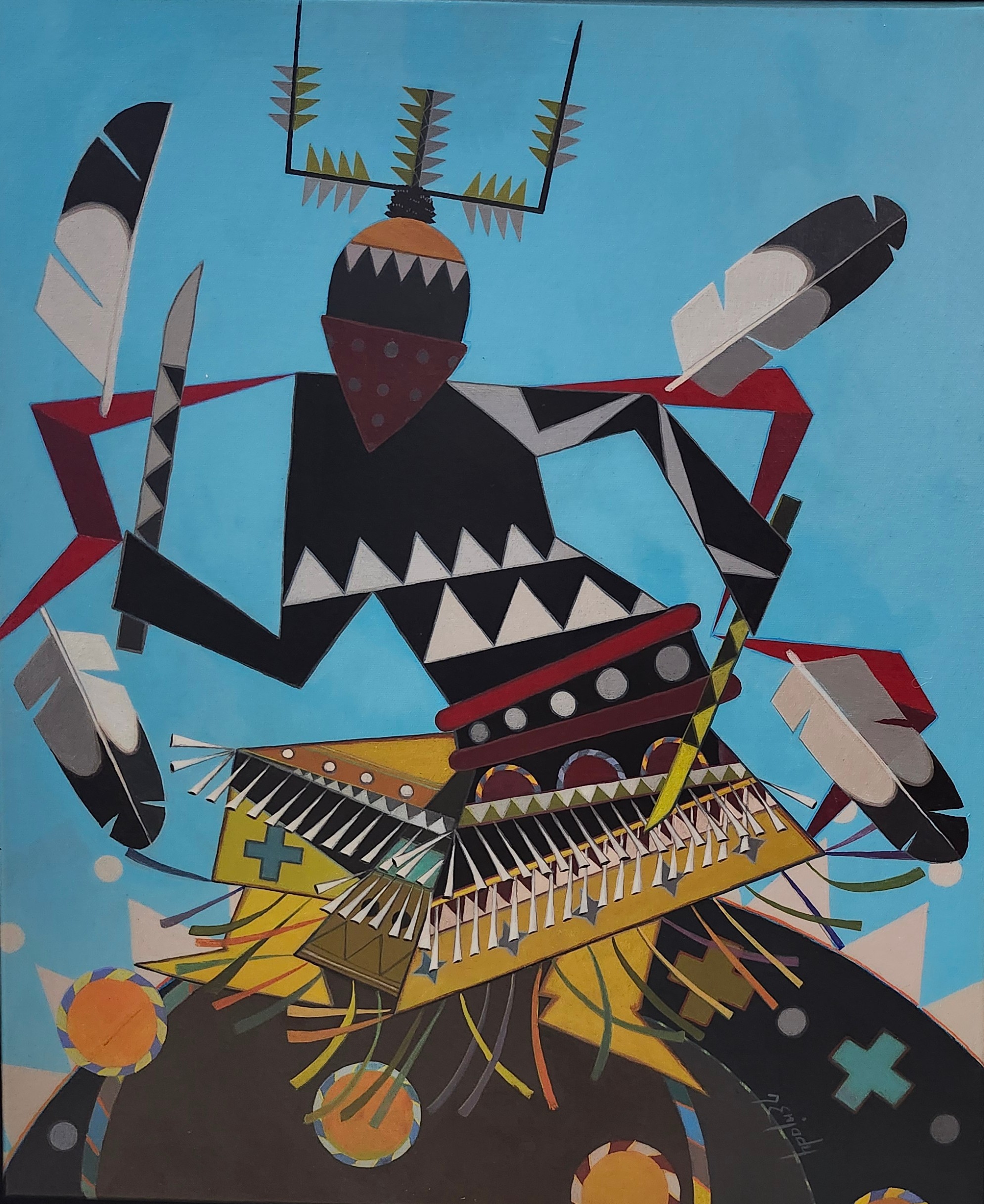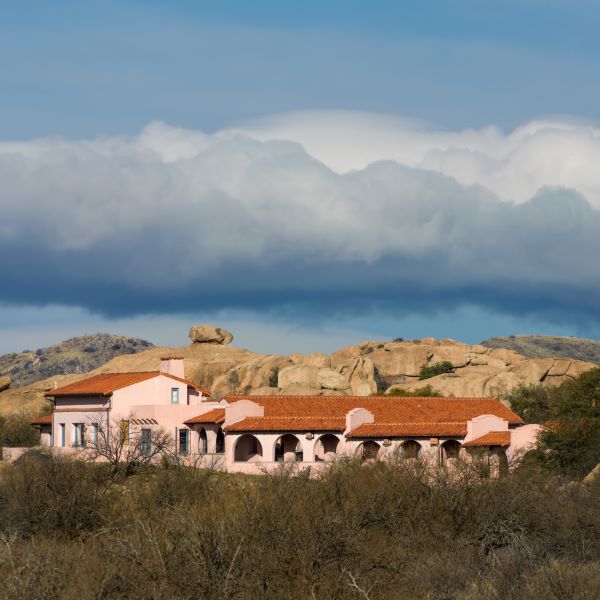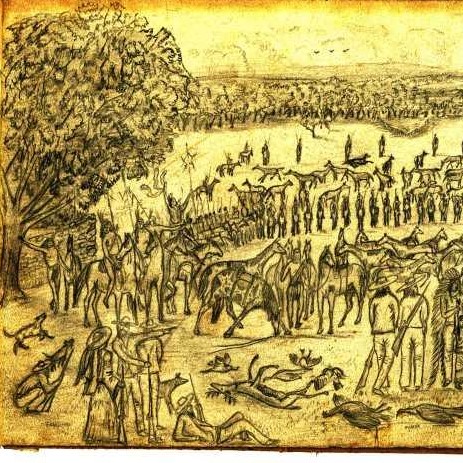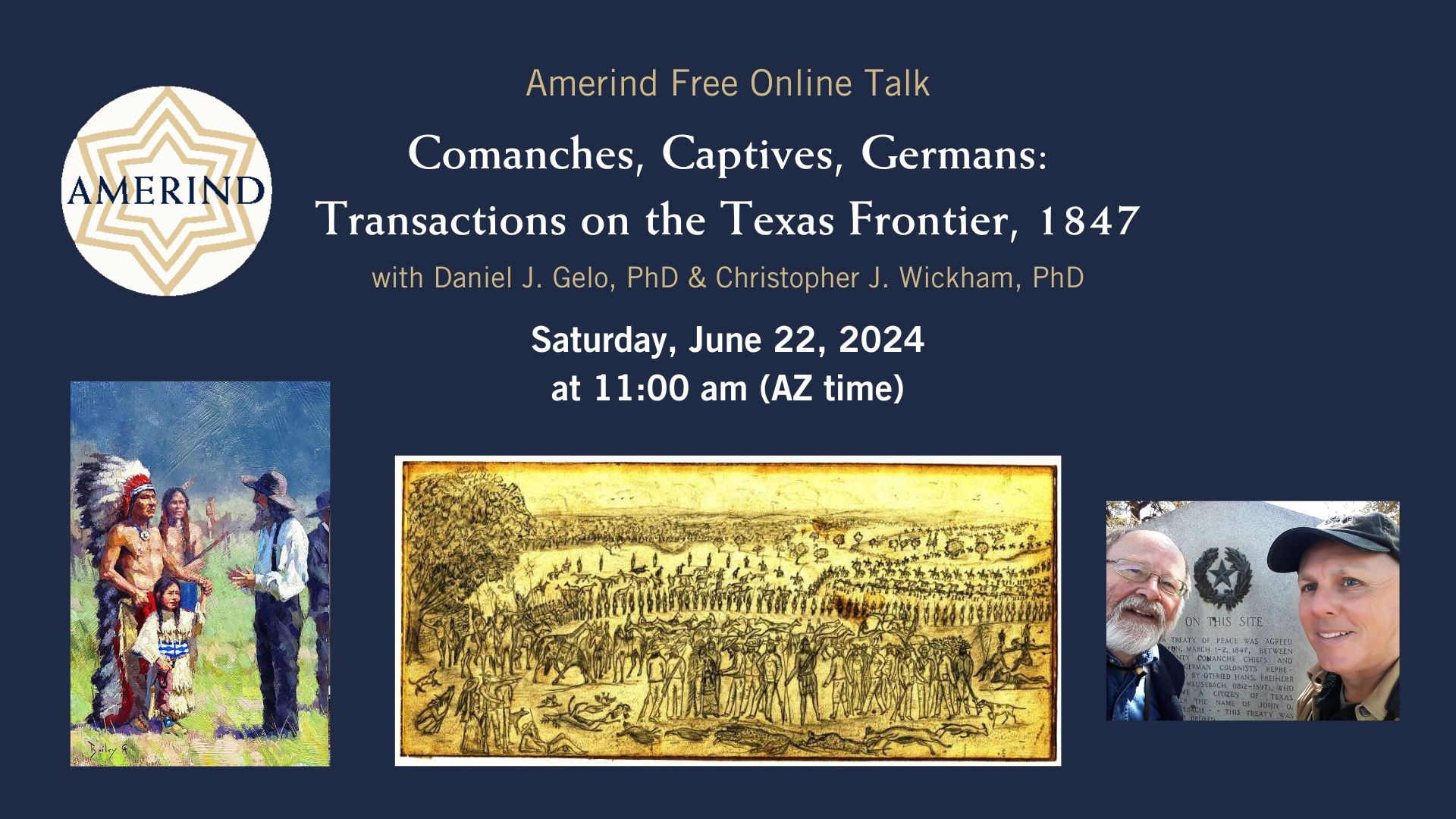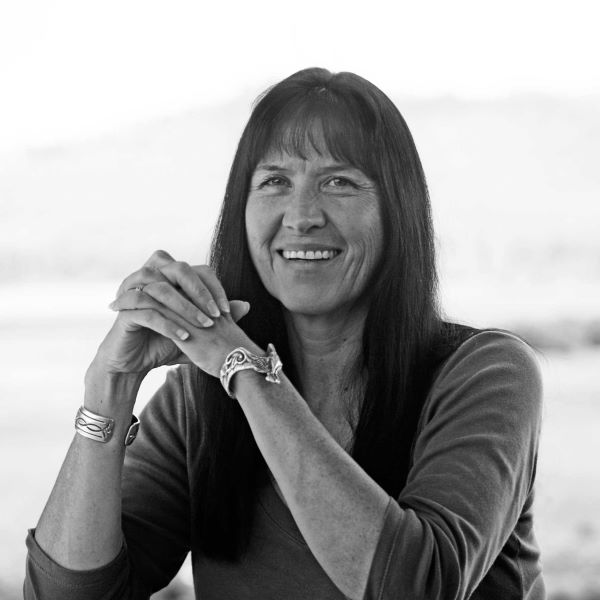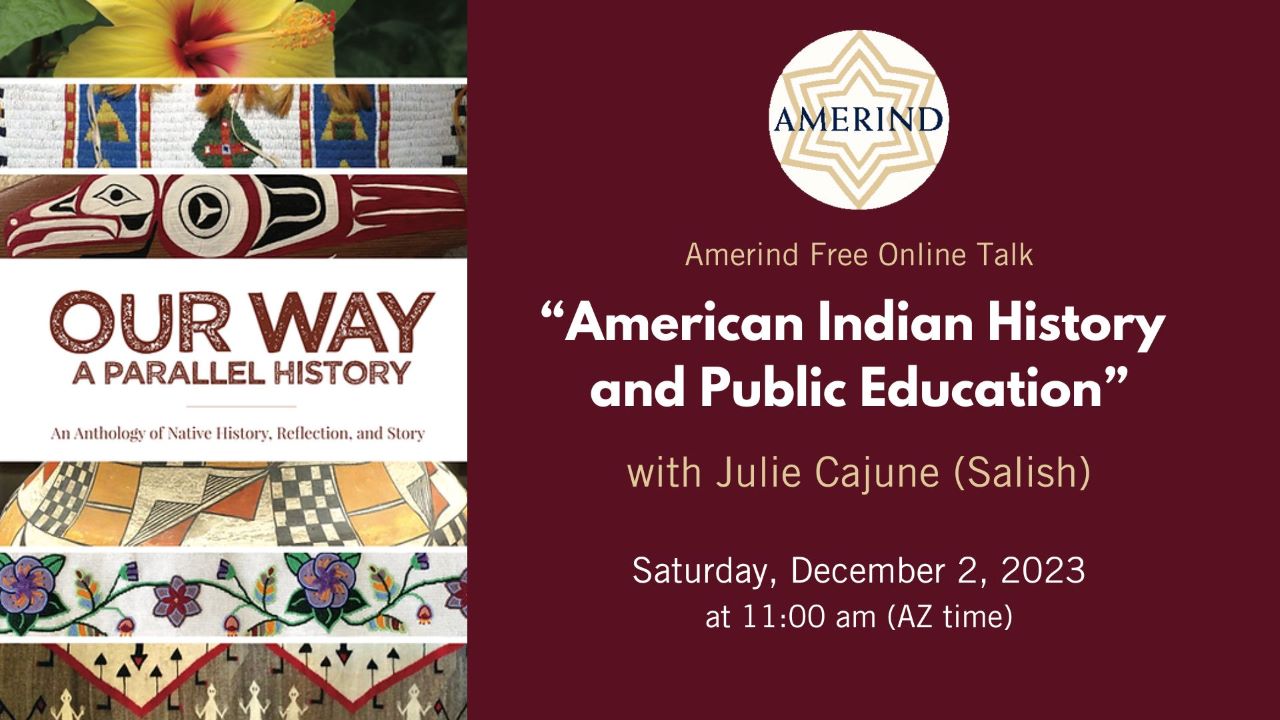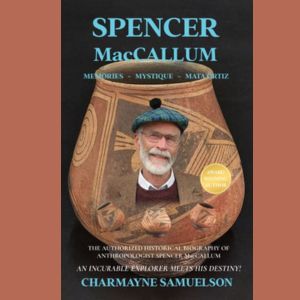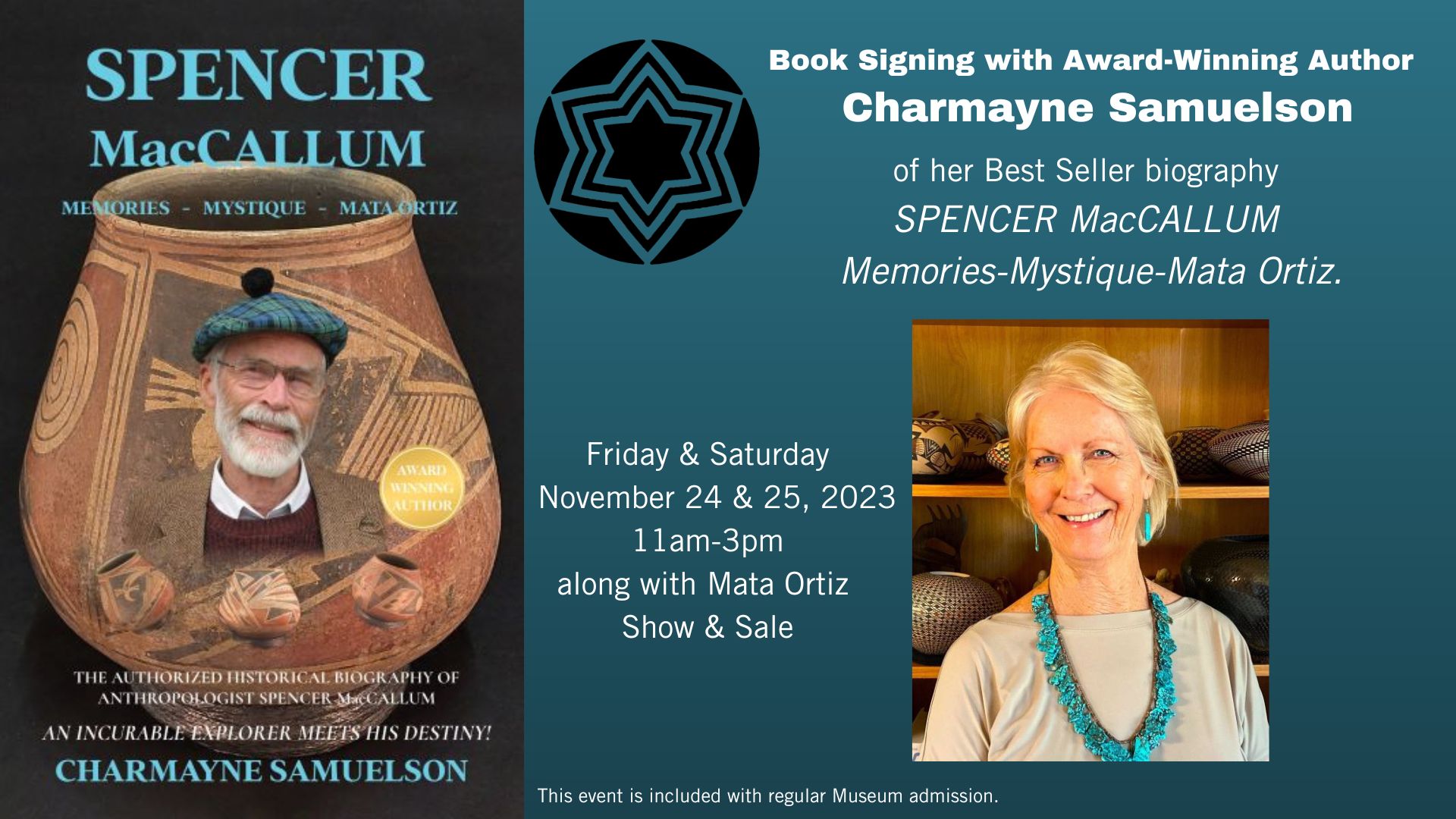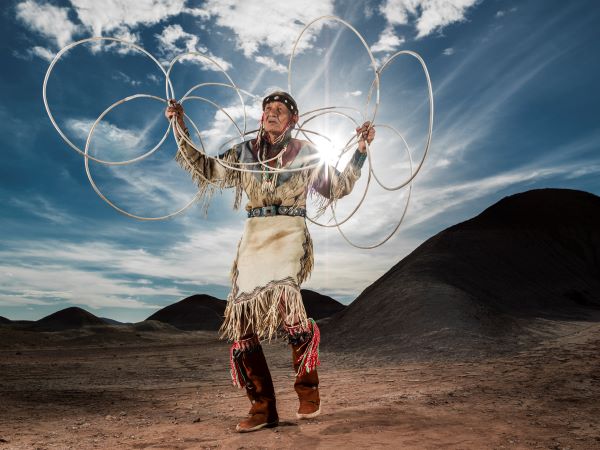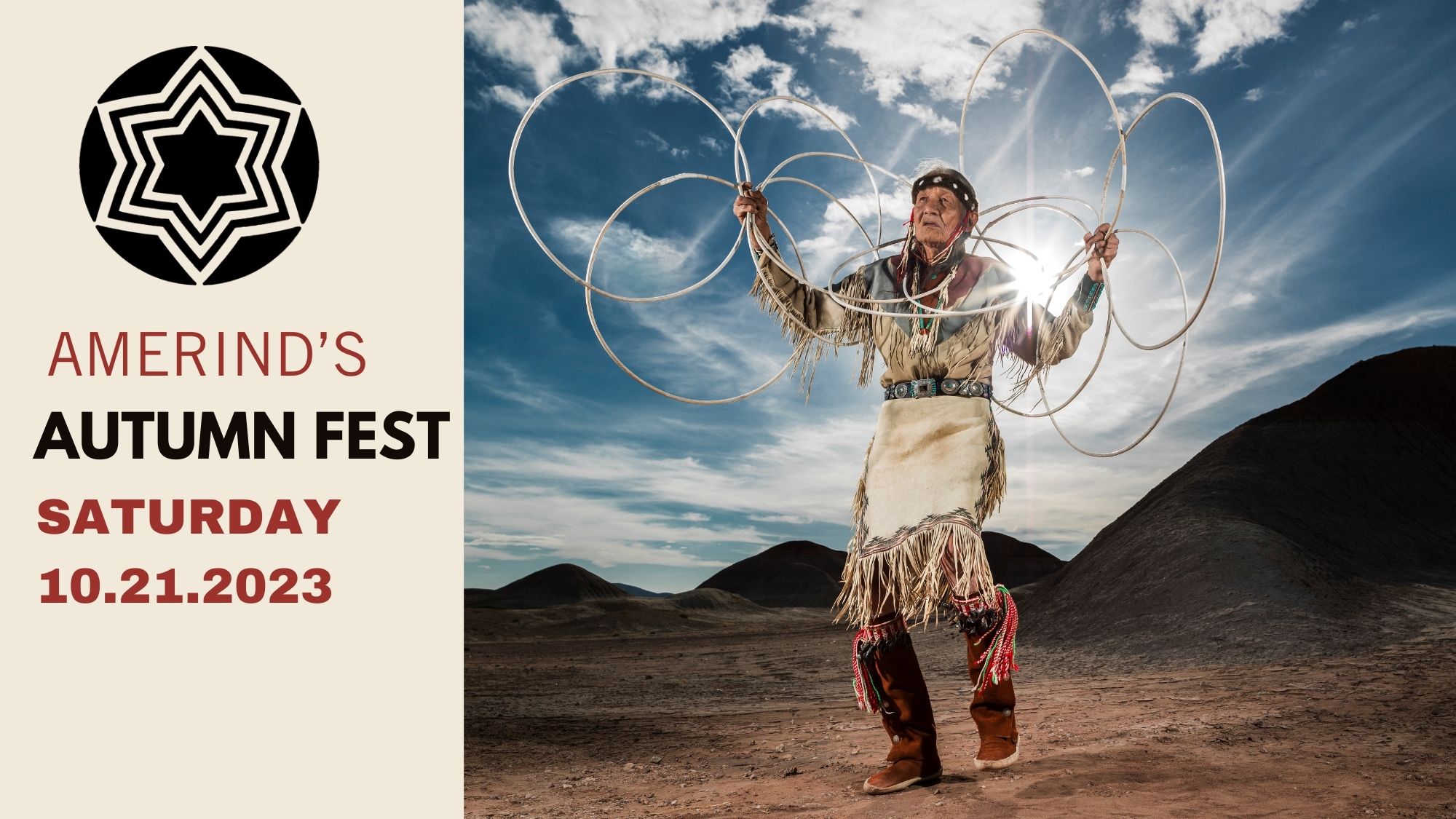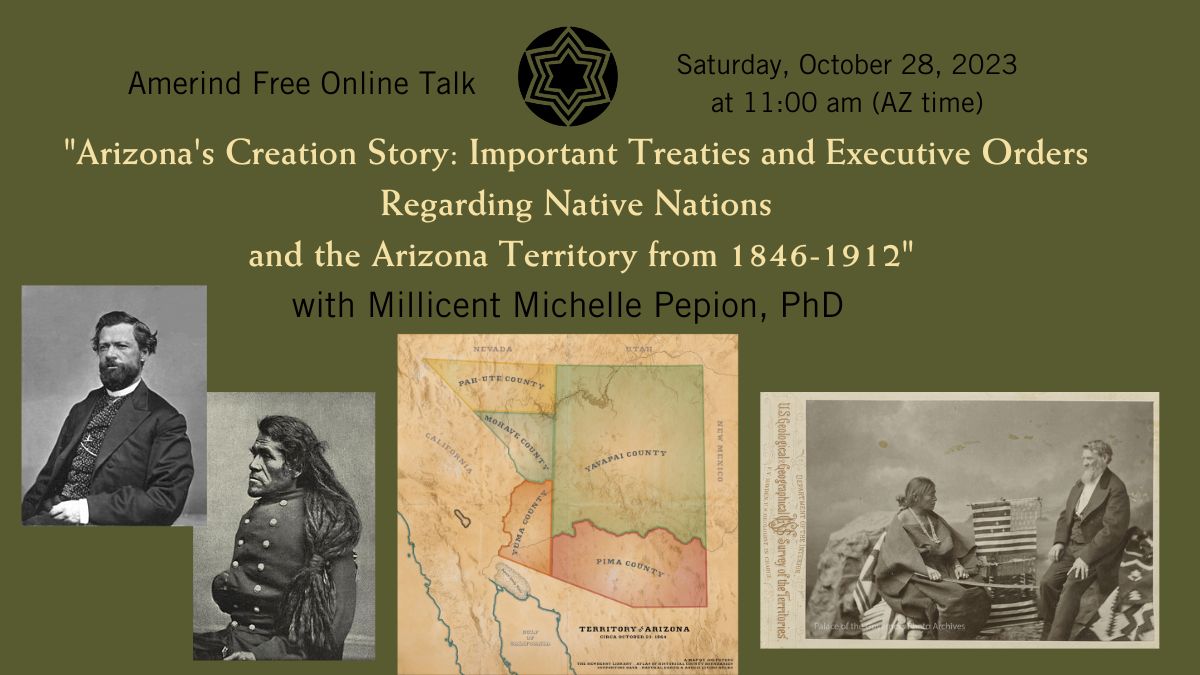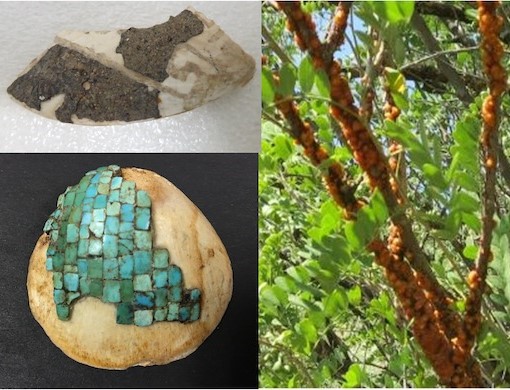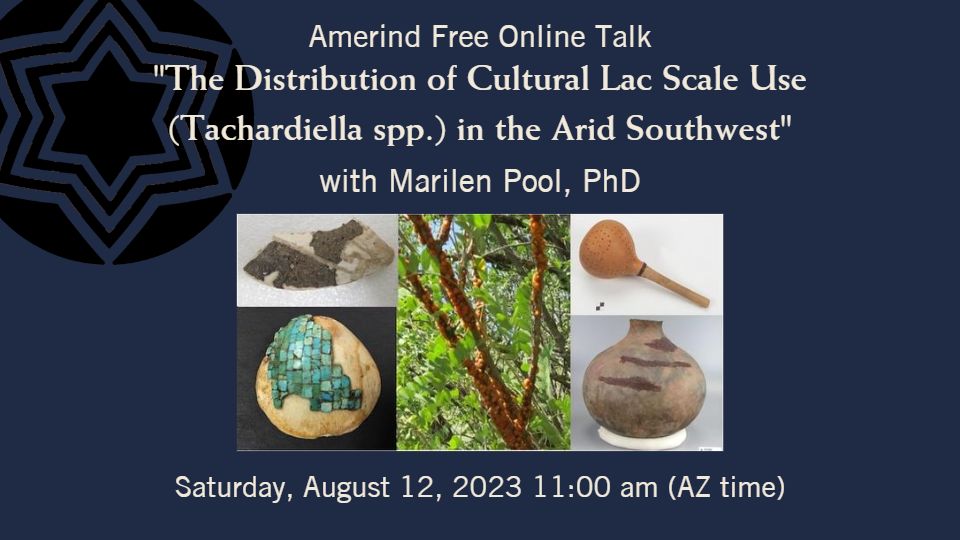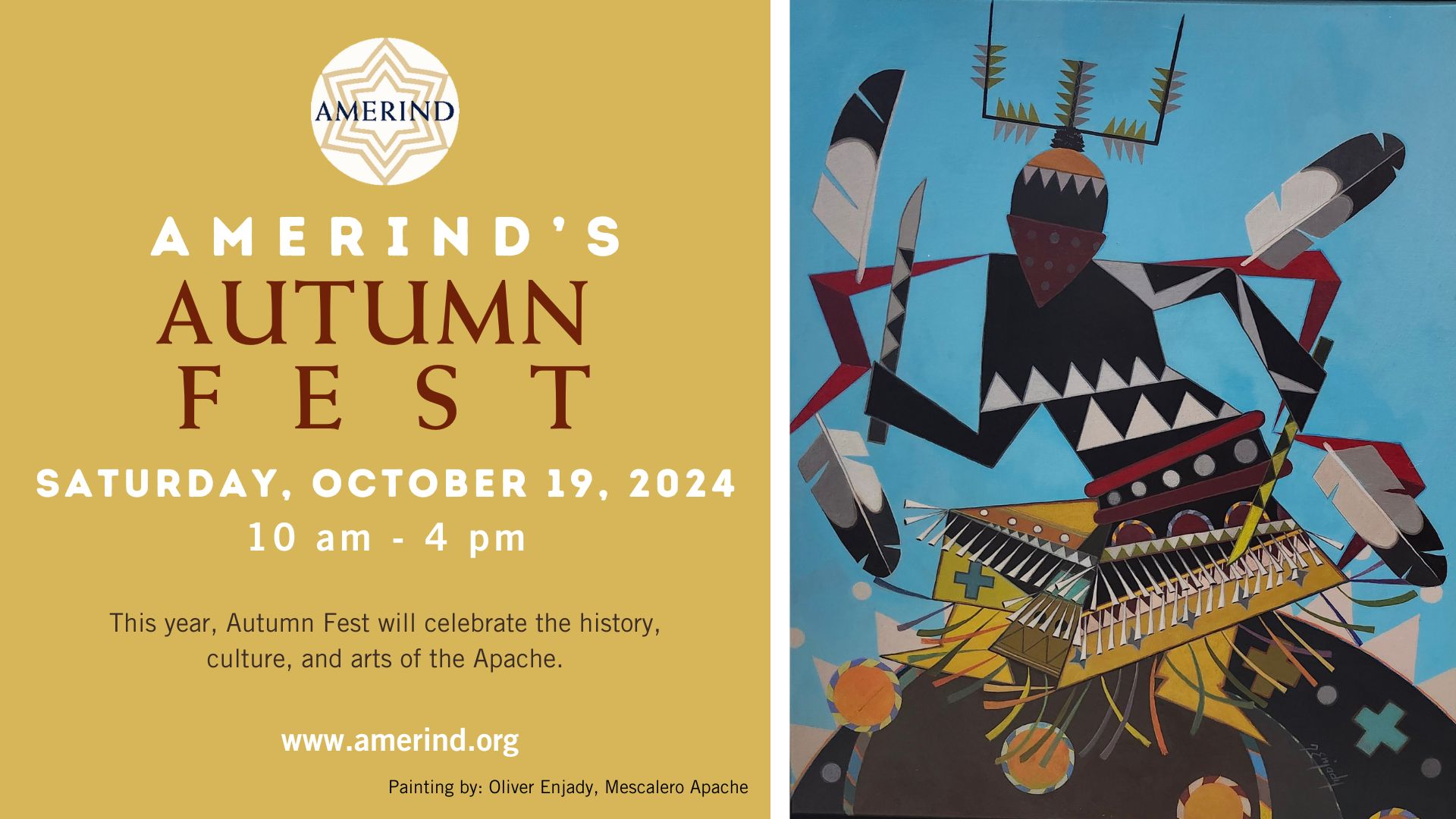
Amerind’s Annual Autumn Fest
Saturday, October 19, 2024
10 am – 4 pm
$10 per vehicle
Join Amerind at our Annual Autumn Fest as we celebrate the history, culture, and arts of the Apache Community.
Rich in tradition, history, and culture, Apache teachers, artists, and singers will hold a day-long cultural celebration at the Amerind Museum in Dragoon, Arizona.
Autumn Fest will feature live performances by musician Matthew Andrae (Jicarilla Apache) accomplished guitarist and singer-songwriter.
Public talks about Apache history from scholars:
Jeff Haozous (Fort Sill Apache) will present the following talks:
“Geronimo’s Road — the removal and ruination of the Chiricahua Apache Tribe”
11:45-12:45 Lecture in the Art Gallery
“Cochise’s Trees — the restoration and return of Chiricahua Apache people”
1:00-2:00 Lecture in the Art Gallery
Marcus C. Macktima,PhD (San Carlos Apache) will present the following talks:
“Civilizing” the Peoples: San Carlos Apache History, 1872-1900″
10:30-11:30 Lecture in Art Gallery
Prior to the colloquially named, “Apache Wars,” in the late nineteenth century, the Apachean peoples in Arizona Territory underwent a series of changes to their culture and hierarchies. The placement of Apachean peoples on reservations in the White Mountains and at the San Carlos Agency after the Camp Grant Massacre in 1871, fostered an environment where the federal government replaced the societal structures of the peoples and transformed the people into one that grew reliant on the government for all of their basic needs. Removals of Indigenous peoples throughout Arizona to the San Carlos Reservation altered the local community into a conglomerated peoples that proved problematic for all those involved. Moreover, the discovery of precious natural resources motivated Arizona officials to petition government entities to force a relinquishment of reservation territory for the benefit of the territory. The inclusion of all removed peoples on the reservation in determining such a change to reservation territory proved that the perception of identity was rooted in “reservation” politics, and also provided a means for government agents to accomplish its goals in developing a civilized American West. These changes and experiences primed the reservation for a moment in the 20th century that solidified the modern understanding of the San Carlos Reservation.
“Modernity as a Justification: The Coolidge Dam and Indian Reorganization, 1900-1930s”
2:15-3:15 Lecture in Art Gallery
As Arizona Territory moved into the 20th century, so did the Apachean peoples. The changes brought to the reservation in the 19th century, culminated in further diminishment of the Apachean identity. Furthermore, perceptions of the “San Carlos Indian” stemming from the previously fought “Apache Wars” made the peoples “expendable” in the eyes of the new settler government as water rights and issues for both settlers and the O’odham peoples in Central Arizona came to the forefront. The creation of the Coolidge Dam on the reservation, justified by Carl T. Hayden as a necessity to assist the O’odham people, hindered the ranching and farming capabilities of the San Carlos “Indians.” By the 1930s, the peoples underwent a significant change as they incorporated the Indian Reorganization Act into their new tribal government. Debates on its implications and implementations caused a political upheaval, and upon the establishment of the San Carlos Constitution, the peoples officially recognized all peoples on the reservation, including those removed to the reservation, as “Apache.”
We will have artist booths from various Indigenous artists who will be showing and selling their work, including: Oliver Enjady, paintings, Ishkoten Dougi, paintings/prints, Aaron Freeland, paintings/prints, Jicarilla Apache baskets by Rowena Mora, Jacinda & Adrian Atencio, Beadwork, pottery by Shelden Nunez-Velarde, Jewelry by Matagi Sorensen, Talrick Enjady, paintings/drawings, Jordan Torres, paintings/prints/metalwork, Leonard Boyd, paintings/sculpture, Randy “Sabba” Sabaque, prints, Roger Sosakete Perkins, paintings/pottery/digital art, Eric & Charlotta Greenstone, jewelry/horsehair pottery, Veronica & Ernest Benally, jewelry, Maria Arvayo, paintings, Gerry Quotskuyva, paintings/carvings,and last years people choice winners, Priscilla Tacheney, photography, John Suazo, sculpture, Arnold & Karlene Goodluck, jewelry and others!
- Artist demonstrations in Apache basket weaving by Rowena Mora.
- Amerind Artist in Residence Akilah Martinez will be showing her latest digital art.
- Join us for a special free basket-making activity designed for kids. This event offers a unique opportunity for young participants to learn about Apache culture and engage in the timeless art of basketry. Come and discover the beauty and significance of Apache baskets through a hands-on activity.
- Enjoy two new museum exhibits during Autumn Fest; Museum entry is included with vehicle entry.
- non-profit booth Nde’ Bike’eya’ Chiricahua Apache Land Trust
Food: by Shirley’s Native Food and La Unica Mexican Food.
Autumn Fest is Saturday, October 19, from 10:00 am until 4:00 pm at the Amerind Museum in Dragoon, AZ. $10 per vehicle.
Please be aware the Amerind Hiking Trails will be closed on October 19th during Autumn Fest. Thank you for your understanding.
Please note if you are interested in coming with a group on a chartered bus from Tohono Chul, visit: https://tohonochul.org/event/amerind-autumn-fest/ for more details.
